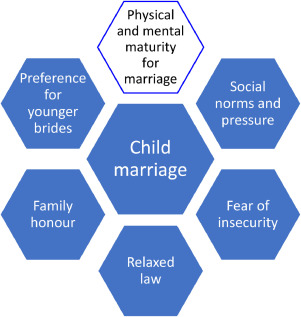Education holds a paramount relationship with the Sustainable Development Goals (SDGs) as delineated by the United Nations in 2015. It is not only recognized in its standalone form in SDG 4, which strives to “ensure inclusive and equitable quality education and promote lifelong learning opportunities for all”, but also serves as an enabler of other SDGs, highlighting its cross-cutting impact across multiple facets of development. It acts as the foundation stone of knowledge, fostering an understanding of complex socio-economic dynamics that are critical for the attainment of other goals.
Consider, for instance, how education impacts SDG 1 - No Poverty. The increased earning potential offered by quality education is a powerful tool in breaking the poverty cycle. Similarly, in relation to SDG 3 - Good Health and Well-being, education is instrumental in driving better health outcomes by fostering understanding of healthy lifestyles, disease prevention, and the benefits of timely medical intervention.
Addressing the climate crisis (SDG 13) also necessitates education, as it prepares individuals to understand the intricate relationships between human activities and their environmental impact, and to seek sustainable solutions. Moreover, achieving gender equality (SDG 5) is intrinsically tied to education, as access to quality learning opportunities for girls and women empowers them, promotes their participation in decision-making processes, and helps in overturning deeply entrenched societal biases.
Quality education also fosters innovation and infrastructure development (SDG 9), as it equips individuals with the technical and creative skills necessary to devise advanced technologies and infrastructures. Moreover, education fosters peace and justice (SDG 16) by promoting a culture of peace, non-violence, global citizenship, and appreciation of cultural diversity.
In this multifaceted role, education serves as a catalyst in the process of sustainable development. However, these interconnections necessitate that education systems themselves are made more inclusive, resilient, and sustainable. The challenges of the 21st century, such as the digital divide and the increasing need for lifelong learning, require urgent attention to ensure education continues to play its role effectively. Education is the key that unlocks the potential of all other SDGs, making its universal attainment not just a goal, but a pre-requisite for a sustainable future.
Parental education and inequalities in child mortality: a global systematic review and meta-analysis
The World Health Organization considers the provision of information about safe, legal abortion essential for good-quality abortion care, but the question remains about who is responsible for providing information to people whose needs are not met in their own countries. Using data from a mixed-method research conducted with women travelling from France, Germany, Italy, and Ireland to seek abortion care in the UK, the Netherland, and Spain, we map the trajectories through which people receive information about accessing abortion abroad.
Libraries, Digital Information, and COVID Practical Applications and Approaches to Challenge and Change Chandos Digital Information Review 2021, Pages 111-118
United States and South Korean citizens’ interpretation and assessment of COVID-19 quantitative data
Children with disabilities in Ontario, Canada have their right to equal access to education protected by the 1990 Ontario Human Rights Code and the 1990 Education Act. These legislated rights require the delivery of stigma- and barrier-free education services to children with disabilities. However, the extent to which compliance is achieved by school boards and individual schools is questionable and warrants attention as a matter of both scholarship and public policy.

